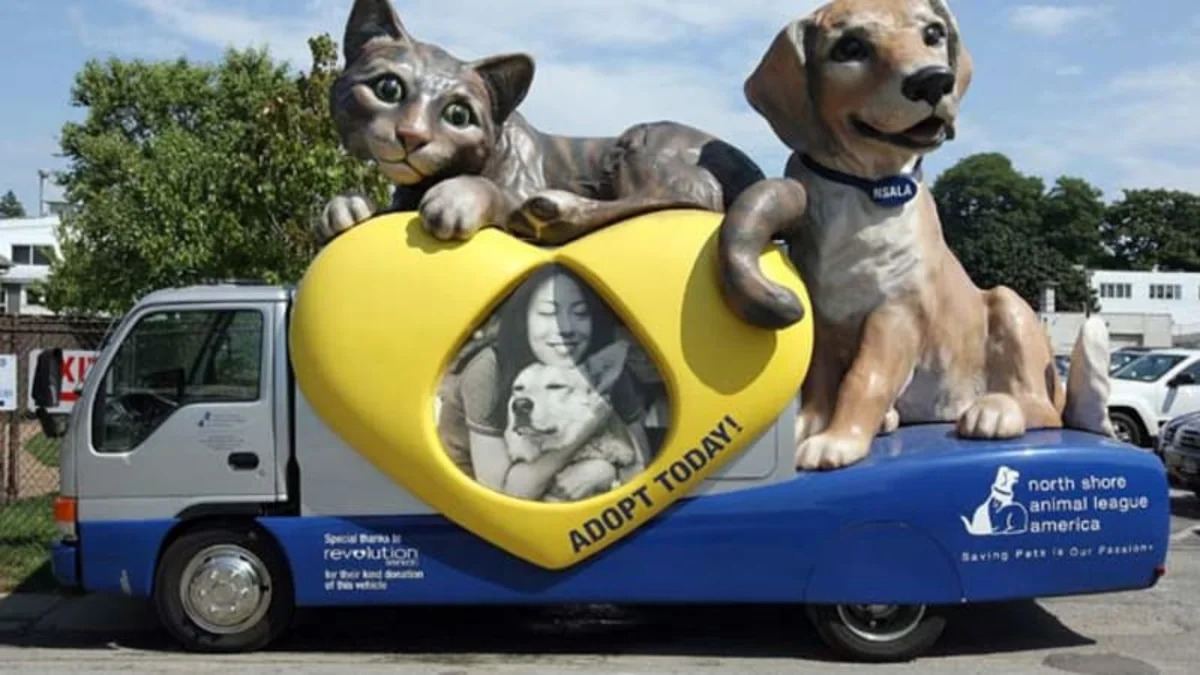If you don't like dogs, there's now a new reason to continue avoiding canis domesticus. New Zealanders Robert and Brenda Vale have put forth the hypothesis that the care and feeding of a pooch is more environmentally harmful than rolling in a Toyota Land Cruiser. Those shifty, antisocial felines aren't much better, so don't get any more smug than you already are, cat people. One ten-pound feline's care is the same to the environment as a 3300-pound Volkswagen Golf, the theory goes.
The Vales present this work in their book "Time to Eat the Dog? The Real Guide to Sustainable Living." The animals that wind up in dog food burden the land while they're alive, and the amount of goodies that people lavish upon their dogs, from squeaky toy to special grooming sessions also do the equivalent work of burning the rainforest.
The claims have been disputed, of course – no doubt by more than a few dog lovers. The chief researcher for Seattle's Sightline Institute, Clark Williams-Derry, ran some numbers of his own and came up with results that don't square with the Vales. The think-tank scientist calculated that for the Vale's numbers to add up, the average dog would have to eat twice as much as the average person, an idea that is difficult to fathom since people are heavier than most dogs.
The takeaway from all this is simply that dog (and cat) ownership does have an ecological footprint. Like everything else in your life, keeping a pet is intertwined with our insatiable consumerism. The truly concerned will carefully consider where the products and items they purchase for their pets are made, what goes into them, and what that means for the planet. The rest of you will keep letting adorable little Beaufort leaves deposit on our lawns.
[Source: Seattle Times | Image: Andrew H. Walker/Getty]
The Vales present this work in their book "Time to Eat the Dog? The Real Guide to Sustainable Living." The animals that wind up in dog food burden the land while they're alive, and the amount of goodies that people lavish upon their dogs, from squeaky toy to special grooming sessions also do the equivalent work of burning the rainforest.
The claims have been disputed, of course – no doubt by more than a few dog lovers. The chief researcher for Seattle's Sightline Institute, Clark Williams-Derry, ran some numbers of his own and came up with results that don't square with the Vales. The think-tank scientist calculated that for the Vale's numbers to add up, the average dog would have to eat twice as much as the average person, an idea that is difficult to fathom since people are heavier than most dogs.
The takeaway from all this is simply that dog (and cat) ownership does have an ecological footprint. Like everything else in your life, keeping a pet is intertwined with our insatiable consumerism. The truly concerned will carefully consider where the products and items they purchase for their pets are made, what goes into them, and what that means for the planet. The rest of you will keep letting adorable little Beaufort leaves deposit on our lawns.
[Source: Seattle Times | Image: Andrew H. Walker/Getty]


Sign in to post
Please sign in to leave a comment.
Continue